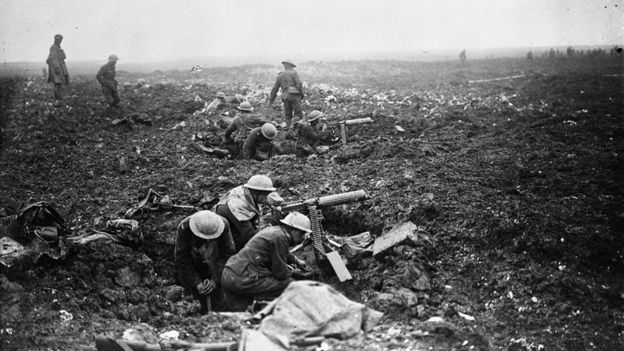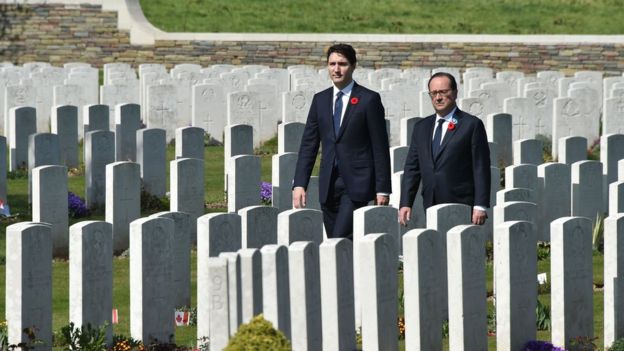今天是个重要日子:Vimy岭大战一百周年纪念日,加拿大首次独自作战,多国政要出席! austraveller2017-04-09 17:29:02
http://www.bbc.com/news/world-us-canada-39546875
More than 20,000 Canadians have travelled to Europe to mark the centenary of one of the country's defining moments - the Battle of Vimy Ridge during World War One.
About 3,600 Canadians died in the battle in northern France, that began on Easter Sunday, 9 April 1917.
It was the first time different Canadian military divisions had fought together under one command.
Prime Minister Justin Trudeau paid tribute to those who fought.
"The Battle of Vimy Ridge was a turning point in the First World War and for Canada, when Canadians acted - and fought - as one," he said.
Having laid flowers at the site of the battle earlier on Sunday, Mr Trudeau attended a commemorative ceremony with French President Francois Hollande, the Prince of Wales, the Duke of Cambridge and Prince Harry.
The Queen also sent a message to Canadians in French and Englishcommending their soldiers for the sacrifice they made.
 REUTERS
REUTERS
The battle of Vimy Ridge, near Arras, was part of a wider British-led offensive that acted as a diversion from a French attack to the south, and proved successful in its aim.
The battle across a 7km (4.3-mile) ridge began in heavy snow and sleet and lasted four days. Four Canadians went on to earn the Victoria Cross, the British military's highest award for bravery.
 AFP
AFP
Success at Vimy Ridge was the result of intense training over several months, and despite the heavy losses, helped forge Canada's identity on a global scale only 50 years after it had become an independent dominion.
Two years later, Canada was one of the signatories to the Treaty of Versailles, formally ending the war.
Among those attending the ceremony in Vimy on Sunday was Ken Piggott, a retired Army captain from Nova Scotia. "It was an important step in shaking off British colonial rule," he told the AFP news agency. "For that reason, it is a huge source of pride for me."